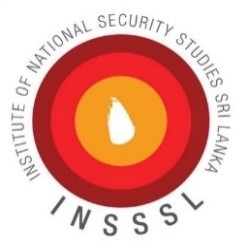“Gaps, Loopholes and Weaknesses in National Security - The Roles of DMRC, ACJU and Wafks Board”
September 13, 2021
Institute of National Security Studies
Closed Door Public Lecture on
“Gaps, Loopholes and Weaknesses in National Security- The Roles of DMRC, ACJU and Wafks Board”
08th of September 2021, from 1400hrs – 1530hrs via Zoom
Press Release
Institute of National Security Studies: The premier think tank on National Security established under the Ministry of Defence, Sri Lanka organized a virtual Closed Door Public Lecture titled “Gaps, Loopholes and Weaknesses in National Security - The Roles of DMRC, ACJU and Wafks Board” on the 08th of September, 2021 from 1400hrs to 1530hrs on Zoom. The Guest Speaker for the event was Prof. Rasheen Bappu, Adjunct Professor, Anthropologist and Intelligence Data Scientist. Rear Admiral Dimuthu Gunawardena RWP**, RSP, VSV, USP, nswc, psc, Director (Communications and Publications), INSS chaired and moderated the event. He warmly welcomed the guest speaker and briefly introduced the topic and the Guest speaker for the event.
Prof. Bappu commenced his speech by presenting the recommendations in PCoI report of 2021 into Easter Sunday attack and Parliamentary Sectoral Oversight Committee report on National security and the importance of regulating the Islamic Religious space. Further he explained the prevailing Islamic religious sects, custodians & organizations and the importance of restructuring and re-engineering their operations in Sri Lanka.
Most importantly he highlighted the issues related to Islamic Education domain which hinders the National Security. He elaborated that there was no secular education in Senior (Kitab) Madrasas which amounted to 317 units within the country. Daily Daham Paasals, also known as Makthab-ACJU, were severely overdosing religious education on students. Sunday Daham Paasal supervised by Ahadiya Federation showcased a decline of students while Junior (Quran/Hifl) Madrasas were not being overseen by any authority. He also emphasized that religious education being supervised by several entities resulted in many syllabus being developed. He underlined the urgent need to restructure the Muslim Daham Paasals so that the State would have a control over the existing system.
By highlighting the importance of regulating religious spaces Prof. Bappu, stated that the registration of religious organizations should be implemented and that relevant letters should be taken up with the Defence Ministry, MBSRA and AG. Prof. Bappu also reiterated that Sufi ideology was being promoted through lectures with Sufi Scholars and the printing of books on Sufi teachings. He stressed that the need to integrate Muslim culture with Sri Lankan Muslim heritage was of utmost importance. Cultural programs that promoted art and literature such as festivities could be used as a means of engaging with other communities.
Prof.Bappu mentioned that misguided scholarly preaching has confused the religion and culture. To this end it is high time to concentrate on integration of Muslims to the culture and Muslim Heritage of Sri Lanka. He further stated that steps were being taken to bring mosques under the full control of the Wakfs Board & DMRCA by ensuring the law is enforced.
Prof. Bappu concluded by stating that it is vital to bring together different sects of the Muslim community to work together for a common goal by mending the fragmentation of the community caused by internal conflicts, while finding ways and means to enhance co-existence between other communities.
The session was then followed by an interactive discussion and a Q & A session. It was agreed that certain shortcomings in the existing frameworks had to be addressed to ensure social harmony and coexistence, thereby securing the national security of Sri Lanka.